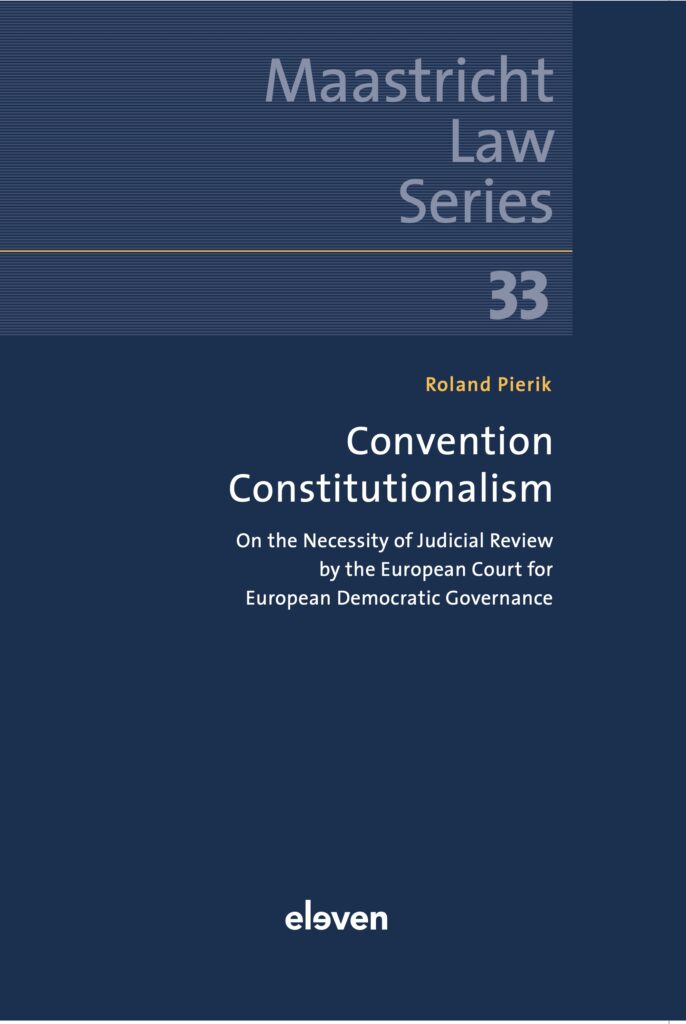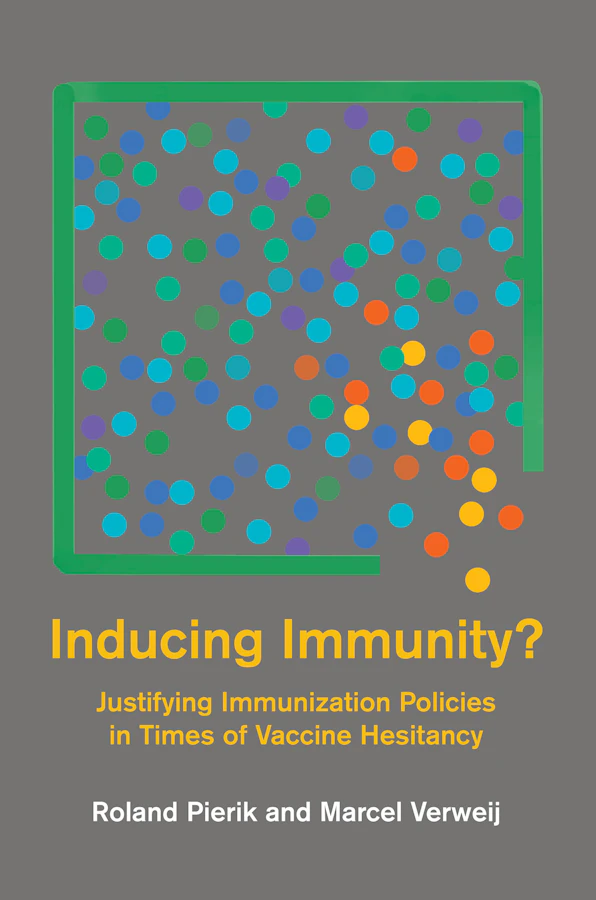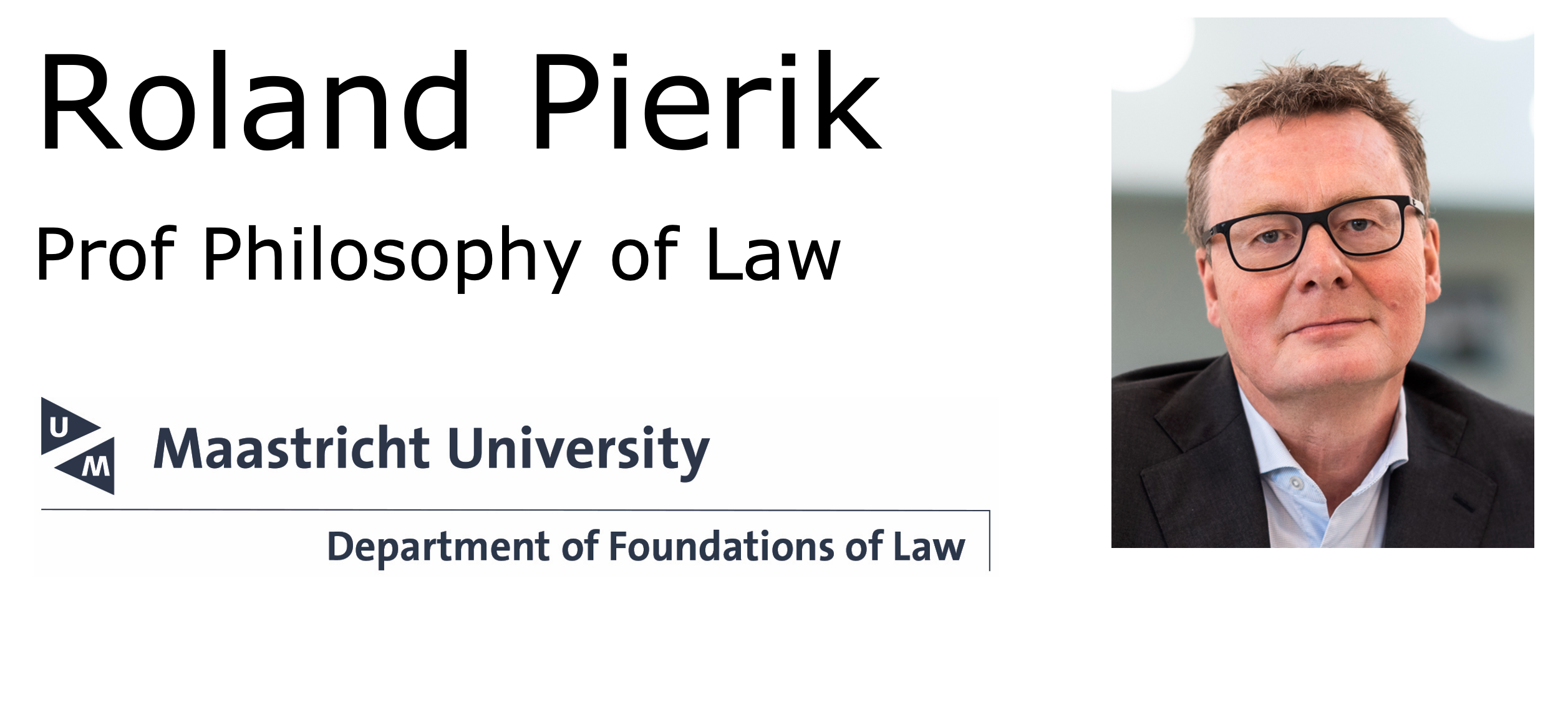I am a Professor of Philosophy of Law at the Faculty of Law of Maastricht University. I am also the chair of the Department of Foundations of Law and one of the co-directors of the Maastricht Research Centre for Law & Jurisprudence.

Publications
- In the media (in Dutch)
- Academic publications
- An overview of my publications in ORCID
- CV and Ph.D. supervision
- My street photography
Research interests
My research revolves around how constitutional liberal democracies should deal with cases where fundamental rights clash or conflict with other central ideals within constitutional democracy: the rule of law or democracy. I study fundamental rights both as philosophical concepts of law, but also as legally enforceable rights as formalised in constitutions and human rights treaties, in particular the the European Convention on Human Rights.
I have analyzed a myriad of such legal disputes and policy dilemmas:
- The role of the European Court of Human Rights in regulating the symbolic establishment of religion by the Convention States in their public sphere;
- the (unjustified?) unequal treatment of MSM men in blood donation policies;
- the regulation of vaccination: article and book;
- the discussion of the crucifix in classrooms of Italian public schools before the European Court;
- The justification for mandatory vaccination;
- The role of human rights in the regulation of transnational clinical trials;
- The role of human rights in countering child labor;
- the shared responsibility of nation-states;
- The shared responsibility of nation-states to protect fundamental human rights for all world citizens.
Teaching obligations
At the Faculty of Law of Maastricht University, I am involved in, or responsible for the following courses:
- Legal Philosophy (Bachelor European Law School);
- Foundations of Law (Bachelor European Law School);
- Foundations of Global Law (Master Globalisation and Law);
- The Foundations of European Institutionalization (Master European Law School);
- Between public and private: a metajuridical analysis (Master Dutch Law)
- Tussen publiek en privaat: een metajuridische analyse (Master Nederlands recht).
Inaugural lecture: Convention Constitutionalism
On December 1st, 2023, I gave my inaugural lecture as professor of philosophy of law in Maastricht, which nicely summarizes my current line of research. It was entitled Convention Constitutionalism. On the Necessity of Judicial Review by the European Court for European Democratic Governance.
DOI: https://doi.org/10.26481/spe.20231201rp
Printed version: ISBN 978-90-4730-229-2
Open-access PDF file: ISBN 9789400114470

Abstract
The European Court of Human Rights has been criticized for unduly interfering in democratic decision processes. Some argue that the unelected Strasbourg activists in robes should not interfere with democratic policy decisions that were made nationally. This inaugural lecture analyses this practice of rights-based judicial review by the Strasbourg Court.
The first part presents a general legal-philosophical background. It explains that republicans, who emphasize the importance of the democratic way of self-governance, are in favour of weak forms of judicial review. Liberals, who prioritise the constitutionally protected fundamental rights, are in favour of strong judicial review.
The second part employs this conceptual toolbox to describe and analyse judicial review as exercised by the Strasbourg Court since its inception in 1959. Should we understand it as strong, weak, or as something in between? I conclude that it is best understood as a weakened form of strong judicial review.
The third part provides a normative discussion of the Strasbourg Court in the context of the emerging European constitutional landscape. It starts from the observation that the European Convention on Human Rights is first and foremost a collaboration of Party States that pursue congruent constitutional-democratic projects. This third part investigates the role of judicial review by the European Court in the ongoing dialogue with Party States in cementing convention constitutionalism through the further strengthening of a European consensus on the content and impact of Convention rights.
Main publications
- (2023) “Convention Constitutionalism. On the Necessity of Judicial Review by the European Court for European Democratic Governance.” Inaugural lecture Maastricht University, 1 December 2023.
- (2022) “Is Symbolic Religious Establishment Permitted Within the European Convention? A Legal, Political, and Pragmatic Perspective.” Oxford Journal of Law and Religion, 11(1), pp. 122–144.
The regulation of vaccination
Between 2013 and 2021, my research primarily concerned the legal regulation of vaccination against infectious diseases. Initially, my research was primarily focused on childhood vaccination. Several (conflicting) fundamental rights are pivotal in these discussions: the freedom of religion and conscience of non-vaccinating parents, the right to bodily integrity, and the right to health of unvaccinated children – particularly Art. 3 of the UN Convention on the Rights of the Child, stating that in all actions concerning children, their best interests must be a primary consideration of state agencies. Other relevant considerations are the responsibility of the state to protect public health and vulnerable citizens. In the context of the Covid-19 outbreak, I also analyzed the question of whether more mandatory vaccination programs for adults are morally allowed.
Main publications:
- (2024) Inducing Immunity: Justifying Immunization Policies in Times of Vaccine Hesitancy. Monograph, co-authored with Marcel Verweij, MIT Press, (Basic Bioethics series).
- (2020) “Vaccination Policies: Between Best and Basic Interests of the Child, Between Precaution and Proportionality.” Public Health Ethics, 13(2), pp. 201–214.
- (2018) “Mandatory Vaccination: an Unqualified Defence.” The Journal of Applied Philosophy, 35(2), pp. 381-398.
Inducing Immunity
In 2024, Marcel Verweij and have published our co-authored monograph, Inducing Immunity: Justifying Immunization Policies in Times of Vaccine Hesitancy (MIT Press, Basic Bioethics series). This book analyzes the conditions under which a liberal-democratic government should make vaccination against infectious diseases mandatory. We analyze the case of childhood diseases such as measles, polio, and whooping cough, but also the case of vaccination for adults in the COVID-19 context. The book is also available in open access (CC-BY-NC-ND).

Health Council of the Netherlands
From 2017 to 2022, I was a member of the Health Council of the Netherlands, within which I served on the Standing Committee on Vaccinations (2017-2022), the Temporary Committee on Medical Aspects Covid-19 (2020-2021), and the Temporary Committee on HPV (2017-2019).
Unequal treatment of MSM men in blood donation policies
Together with Marcel Verweij, I have conducted an ethical research project for Sanquin into the recruitment policy of donors. Stricter rules currently apply to men who have sex with men (MSM) than to other donors. Some see this as discriminatory and stigmatizing How can the safety of donor blood be guaranteed without discriminatory donor recruitment policies? Our report was presented to the Dutch House of Representatives by Minister Tamara van Ark on March 11, 2021, and has led to more inclusive donor selection. In May 2022, the next step was made in line with our advice, further relaxing the donor selection policy.
Main publication:
- (2022) “Facing Difficult but Unavoidable Choices: Donor Blood Safety and Deferral of Men Who Have Sex with Men.” Bioethics, vol. 36, no. 1 pp. 840-848, co-authored with Marcel Verweij, Thijs van de Laar, and Hans Zaaijer, https://doi.org/10.1111/bioe.13063.

Last modified: 30 augustus 2024
